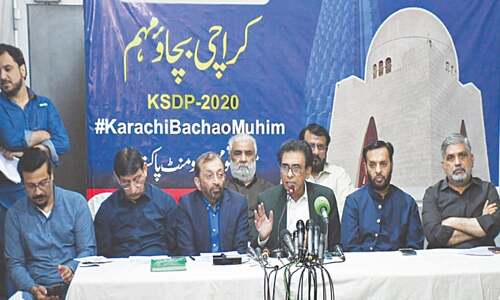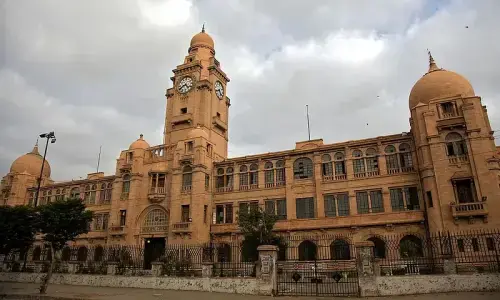KARACHI: Despite having 20 major legislations on environment and a network of environmental tribunals, Pakistan hasn’t made any substantial progress to address environmental concerns.
In fact, the situation has worsened particularly after devolution as there is no official word over the status of the National Environmental Policy 2005 or the Pakistan Environmental Protection Act, 1997.
Nobody knows who is negotiating on behalf of the state with international organisations.
These were some important points raised in a workshop held on Environmental Policies and Practices in the EU and Pakistan: A Comparison organised at the Area Study Centre for Europe (ASCE), Karachi University, in collaboration with Hanns Seidel Foundation, Islamabad on Thursday.
Starting off with her introductory paper on the subject, ASCE director Dr Uzma Shujaat said that the EU had one of the most progressive environmental policies in the world. Since the mid 1970s, the EU environment policy had been guided by action programmes defining priority objectives to be achieved over a period of years.
Over the past decades, she said, the European Union had put in place a broad range of environmental legislations. Political challenges, however, had made the implementation of the laws more difficult because the EU was a supranational body and implementation of legislations was left to member states.
Tracing the history of international conventions and national legislations on environment, Shafqat Kakakhel, who was representing Sustainable Development Policy Institute, said that there was no significant activity till the United Nations conference in 1972 in Stockholm where environment was placed right in the middle of the global agenda and it was agreed that increasing environmental degradation required a joint action.
Pakistan, he said, was one of the few first countries that legislated on environment conservation.
He described the Pakistan Environmental Protection Act, 1997 as a landmark legislation which for the first time defined key environment aspects and also contained clauses for penalties for violators.
He pointed out some critical gaps between environmental legislations and practices and said that the foremost challenge for the country was population explosion, which was putting relentless pressure on natural resources. Pakistan, which was a water affluent country, now had 184 million people and was categorised as a severely water stressed state.
Increasing pollution was one of the outcomes of uncontrolled growth that had occurred mainly due to bad governance, he added.
“We are in a crisis. The situation could create enormous problems in coming two years when the EU would review Pakistan’s compliance with human rights and environmental agreements as the GSP Plus status granted to Pakistan is conditional on the ratification and implementation of major international conventions relating to human rights and environment, among other areas,” he explained.
Pakistan needed a political will and leadership to represent its environmental issues and policies on international forums while suggesting revamping of the Climate Change Division.
He emphasised the need for legislation on marine resources conservation and integrated water resource management. The society also required philanthropy to improve environment, he added.
Giving a presentation on wind and solar energy, EU experiences and its lessons for Pakistan, Irfan Ahmed, technical adviser with Siemens, Karachi, said that if the government didn’t seriously take up the issue of energy shortages, 13 million people of Karachi would be without electricity by 2030.
The government, he said, could overcome energy crisis by conserving electricity and reducing losses (occurring due to obsolete distribution network and theft).
The growth of the EU economy, he said, had no match with Pakistan’s GDP but the former was not energy-secure as it depended on fossil fuel supplies that it imported. Pakistan, however, was energy-secure but was inefficient and wasteful and lacked proper planning, he added.
He suggested long-term planning for hybrid-power plants and selection of energy source according to local needs. Roland deSouza of Shehri for a Better Environment, Sajjad Ahmad, senior research fellow at the ASCE and Dr Shoaib Zaidi, dean of School of Science and Engineering, Habib University, Karachi, also spoke.


































